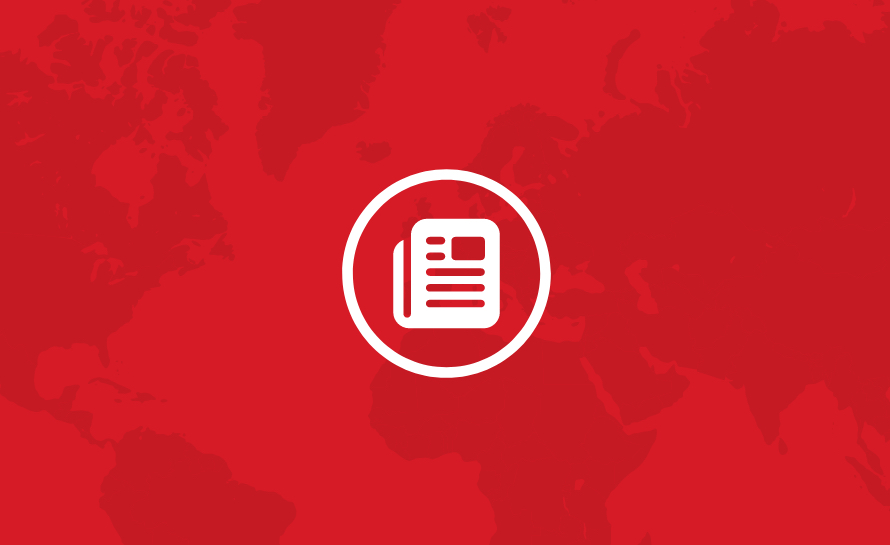WHO Director-General Dr Tedros Adhanom Ghebreyesus; South Africa Minister of Health Dr Aaron Motsoaledi and WHO Ambassador for Noncommunicable Diseases Michael R. Bloomberg to Participate in The World´s Leading Conference on Tobacco Control
The 17th World Conference on Tobacco or Health (WCTOH) to be held for the first time in Africa where tobacco industry interference is endemic
Thursday, 7 December, 2017 (Cape Town, South Africa)—Organisers of the 17th World Conference on Tobacco or Health (WCTOH) to be held in Cape Town, South Africa, 7-9 March in 2018, today announced the attendance of WHO Director-General Dr Tedros Adhanom Ghebreyesus, South Africa Minister of Health Dr Aaron Motsoaledi and Michael R. Bloomberg, a leading actor on tobacco control and WHO Ambassador for Noncommunicable Diseases.
For the past 50 years, WCTOH has been the premier international forum on tobacco control and next year’s event – the first to be held on the African continent – is expected to attract over 2000 researchers, scientists, civil society, healthcare professionals, policymakers and media representatives from around 100 countries. Tobacco use is the world’s leading preventable cause of death killing more than seven million people each year.
“This conference is being held at a critical time, both in the war on tobacco and the drive to protect public health,” said WHO Director-General Dr Tedros Adhanom Ghebreyesus.
“Countries have stepped up action to beat back the tobacco epidemic. But more is needed. By embracing the Sustainable Development Goals, governments have committed to promoting healthier and stronger futures for their citizens. Tobacco control offers one of the surest ways to achieve such ambitions.”
The theme of the conference is Uniting the World for a Tobacco-Free Generation with an overarching focus on expediting progress to reduce tobacco use in all populations around the world – using new research and innovative approaches in public health, as well as powerful but under-used policies, including tobacco taxation and those aimed at preventing industry interference.
Michael Bloomberg will preside over the Bloomberg Philanthropies’ Awards for Global Tobacco Control during WCTOH. The awards recognise leading organisations in low- and middle-income countries doing best in class work on the most effective tobacco control policies, collectively known as MPOWER measures:
Monitoring of tobacco use and prevention policies
Protecting people from tobacco smoke
Offering help to quit tobacco use
Warning about the dangers of tobacco
Enforcing bans on tobacco advertising, promotion and sponsorship
Raising taxes on tobacco
While tobacco use is decreasing in many countries, smoking rates in Africa are anticipated to rise dramatically. By 2030 the number of smokers in the region is projected to increase by 40 percent from 2010 levels, unless there is significant intervention. Africa continues to be aggressively targeted by the tobacco industry, as it represents an opportunity for considerable market growth.
Dr Flavia Senkubuge, President of the 17th WCTOH and a specialist in Public Health Medicine at the University of Pretoria, South Africa said: “The developing world continues to be the most urgent battleground for those working in tobacco control. We are delighted to have the commitment of three such prominent public health champions at the inaugural WCTOH conference to be held in the Africa region.”
Professor Harry Lando, Chair of the 17th WCTOH organising committee said: “We are confident that the high quality of the science being presented in Cape Town will complement the advocacy around WCTOH – we need both, if we are to make bigger strides in tobacco control, especially in this part of the world.”
Some of the scientific highlights being featured at WCTOH include a novel study around HIV and smoking in South Africa, e-cigarette use and young people, and the impact of tobacco taxation and point-of-sale changes on consumers.
The scientific programme can be viewed online now.
ENDS
Further information:
Media registration is free for all accredited media representatives. In the first instance please email: press@theunion.org
A complete press programme will be available online in late January 2018.
For more information on media registration, programme details and interview requests please contact:
Michael Kessler
Michael Kessler Media
Mobile: +34 655 792 699
Email: michael.kessler@intoon-media.com
Twitter:@mickessler
Johanna Dollerson
Global Communications – The Union
Mobile: +44 7920 421 783
Email: jdollerson@theunion.org
About the 17TH World Conference on Tobacco or Health
The 17th World Conference on Tobacco or Health (WCTOH) will be held in Cape Town, South Africa from 7-9 March 2018. It will unite researchers, academics, non-governmental organisations, civil society, scientists, healthcare professionals and public officials working on all aspects of tobacco control from around 100 countries.
Convened by WCTOH’s Advisory Board, the Cape Town Consortium and the Conference Secretariat (The Union), WCTOH is a call for a collective resolution to fight tobacco use by working together and integrating tobacco control into our health and development goals. Held every three years, WCTOH is the premier international conference on tobacco control.
The conference theme – Uniting the World for a Tobacco-Free Generation – recognises that tobacco control is a global issue, crossing all geographic boundaries. The World Health Organization’s Framework Convention on Tobacco Control (FCTC) stands as the backdrop for the conference and for our global response to the tobacco epidemic. It is the only internationally, legally-binding health treaty of the 21st century. Only by coming together are we able to create a tobacco-free generation.
The conference programme includes plenary and abstract sessions, symposia, posters and workshops on the many aspects of the tobacco epidemic. It will highlight the efforts being made to reduce demand for tobacco by putting in place MPOWER measures in line with the WHO FCTC.
